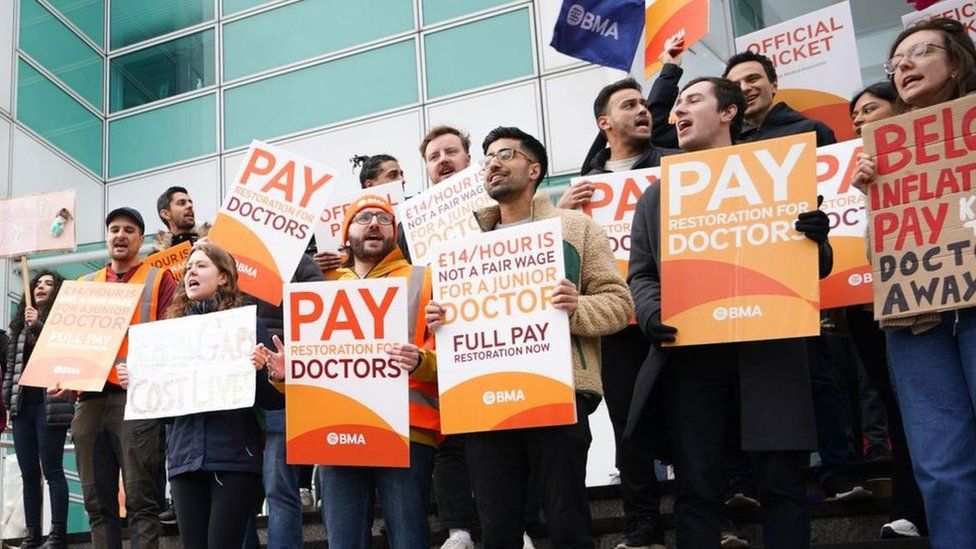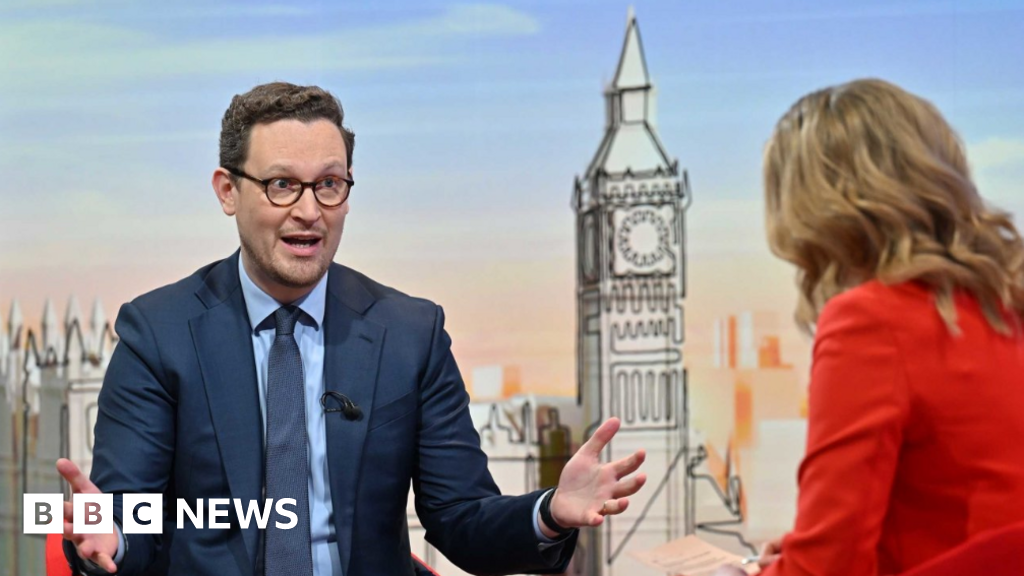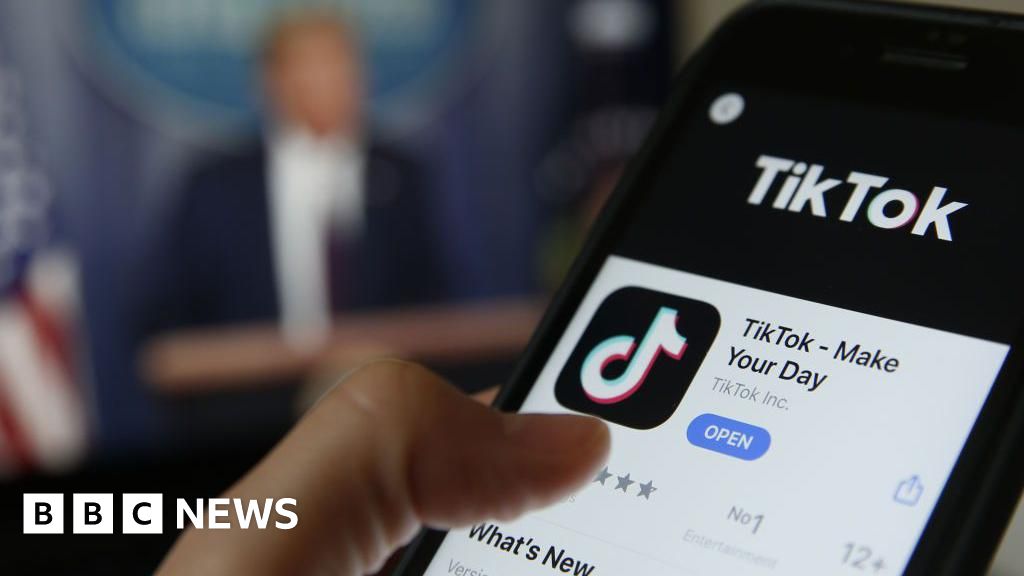ARTICLE AD BOX
 Image source, PA Media
Image source, PA Media
By Faisal Islam
Economics editor
The chancellor has said public sector strikes are hitting the economy, but argued inflation-fuelling pay rises would have a "more damaging" impact.
Jeremy Hunt said the impact of the junior doctors' strike on NHS patients was "incredibly regrettable".
But he said it would be a "terrible mistake" to agree to pay rises above the rate of inflation as it would damage economic growth.
Official figures have revealed the economy was hit by strikes in February.
There has been no breakthrough in the latest public sector strike involving junior doctors, who are calling for a 35% pay increase, which they say can make up for 15 years of below-inflation wages.
The government has said that proposition is "unreasonable" and that talks can only happen if the BMA union moves "significantly" away from this.
Speaking on the sidelines of the International Monetary Fund (IMF) Spring meetings, Mr Hunt said agreeing pay awards that don't fuel inflation was an "incredibly difficult balancing act that we have to get right".
Currently, inflation in the UK, which is the rate prices rise at, is near a 40-year high. Prices in February were 10.4% higher than they were in the same month a year before.
Mr Hunt told the BBC that if the government stuck to its plans, "we will get inflation down to below 3%, by the end of the year, we'll be able to put this high inflation period behind us".
"The worst possible thing that we can do for junior doctors, nurses, train drivers, teachers is to manage the economy in a way that they are still worried about 10% cost of living increases, in a year's time," he added.
Though the government has pledged to cut inflation, many economists have said that inflation is due to fall naturally in the coming months, as a result of energy prices falling.When asked about the junior doctors' pay demands, the chancellor pointed out that when nurses, who started out asking for a 19% rise, publicly committed to a much lower number "that became the basis of a fruitful discussion". Following an IMF forecast which stated the UK is set to be one of the worst performing major economies in the world this year, Mr Hunt hit back, saying that the IMF "have undershot on the British economy for quite a long time".
"I think every year since 2016, bar one has undershot but I think they're just one of a number of forecasters. The impression I get is that, you know, in fact, they've been very public about it, is that they believe the British economy is on the right track. They warmly welcome the Budget."Other G7 finance ministers warmly welcomed what they called a remarkable change in tone and engagement from the UK, from the last set of IMF meetings, which occurred in the middle of the mini-Budget crisis, under previous chancellor Kwasi Kwarteng.

 1 year ago
41
1 year ago
41








 English (US) ·
English (US) ·